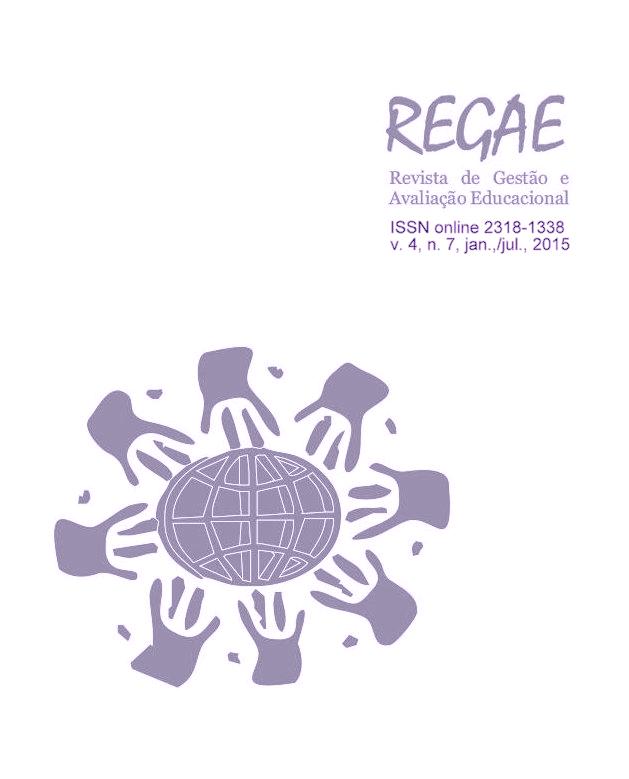School attendance for high school students: review and perceptions as from youth cultures
DOI:
https://doi.org/10.5902/2176217116252Abstract
In this paper seeks to analyze the relationship between youth culture and school attendance. For such approaches to thematic youth culture, national curriculum guidelines for high school and pedagogical project of two schools of Santa Maria / RS. The general objective of the study is to understand the conceptions and intentions young students from high schools in Santa Maria, manifest in his speeches about the school institution. The research methodology focused on the perspective of the case study and data collection involved conducting interviews and creating and maintaining a profile on a social network called Facebook. The work started from the assumption that there is need for knowledge of the cultures and juvenile behavior, especially the conceptions that a group of young people have in relation to the school environment in which they participate, in order to promote greater involvement and mobilization for learning. After completion of the work can be concluded that the school offers distance social life of young people and unattractive compared to current technologies and that although the guidelines are based on full development of the students, sometimes students perceive the school away from their expectations.
Key-words: youth cultures, schooling, Facebook, curriculum guidelines, pedagogical.
Downloads
References
ABRAMOVAY, Miriam. Estar no papel: cartas dos jovens do ensino médio. Brasília: Unesco, 2005.
ABRAMOVAY, Miriam; ANDRADE, Eliane Ribeiro; ESTEVES, Luiz Carlos Gil (org.). Juventudes: outros olhares sobre a diversidade. Brasília: MEC-Unesco, 2007.
BRASIL. Ensino médio: construção políticas - sínteses das salas temáticas. Brasília: MEC, 2003.
BRASIL. Juventudes: outros olhares sobre diversidade: Brasilia: MEC, 2007.
CNE. Parecer CNE/CP9/2001. Brasília: CNE, 2002.
CHRISTOPLE, Micheline. A legislação sobre educação tecnológica no quadro da educação profissional brasileira. <http://tupi.fisica.ufmg.br/michel/docs/Artigos_e_textos/ Gestao_de_cooperativas/educacao%20tecnologica.pdf>. Acessado em 24 jun.; 2013.
CRESPO, Karina Loreto; RUIZ, Álvaro Elgueta; PARRA, Alejandro Riffo. Motivación, consumo y apreciaciones de Facebook por parte de jóvenes universitarios: El caso de la Red UCSC Chile. Ultima décad., Santiago, v. 17, n. 31, dic. 2009. Disponible en <http://www.scielo.cl/scielo.php?script=sci_arttext&pid=S0718-22362009000200008&lng= es&nrm=iso>. Accedido en 24 jun.; 2013.
FANFANI, Emilio Tenti Cultura jovem e cultura escolar: documento apresentado no seminário Escola jovem: um novo olhar sobre o ensino médio. Brasília: MEC, 2000.
GIL, Antônio Carlos. Métodos e técnicas em pesquisa social. São Paulo: Atlas, 1999.
LDB, Lei de Diretrizes e Bases da Educação Nacional. Brasília: CNE, 1996.
OLIVIER, Bert. Facebook, cyberspace, and identity. Psychol. Soc., Cognella, n. 41, 2011 . Available from <http://www.scielo.org.za/scielo.php?script=sci_arttext&pid=S1015-60462011000100004&lng=en&nrm=iso>. Access on 25 jun.; 2013.
PAIS, José Machado; Buscas de si: expressividades e identidades juvenis. Rio de Janeiro: Jorge Zahar, 2006.
PEREIRA, Alexandre Barbosa; Aprendendo a ser jovem: a escola como espaço de sociabilidade juvenil. CONGRESSO BRASILEIRO DE SOCIOLOGIA, 13, 2007. Anais ... Recife: SBS, 2007.
RAMPAZZO, Lino. Metodologia cientifica. São Paulo: Loyola, 2010.
REA, Louis; PARKER, Richard. Metodologia da pesquisa: do planejamento a execução. São Paulo: Pioneira, 2000.
RODRIGUEZ, Edwin Cruz; LESLEY Wood; Los movimientos sociales, 1768-2008. Desde sus orígenes a facebook, barcelona, crítica, 366 P. anal. polit., Bogotá, v. 24, n. 73, dec. 2011 . Available from <http://www.scielo.org.co/scielo.php?script=sci_arttext&pid=S0121-47052011000300009&lng=en&nrm=iso>. Acesso em 24 jun., 2013.
Downloads
Published
How to Cite
Issue
Section
License
Authors keep copyright and concede to the magazine the right of first publication, with the work simultaneously licensed under the Creative Commons Attribution 4.0 International, non-commercial license with no derivative work, which allows to share the work with no author recognition and initial publication in this magazine.
Authors has authorization to overtake additional contracts separately, to distribute a non-exclusive version of the work published in this magazine: For example: to publish in an institutional repository or as a chapter of a book, with authorial recognition and initial publication in this magazine.
Authors are allowed and are encouraged to publish and distribute their work online. For example: in institutional repositories or in their own personal page – at any point before or during the editorial process, because this can result in productive changes, as well as increase the impact and the mention to the published work.






